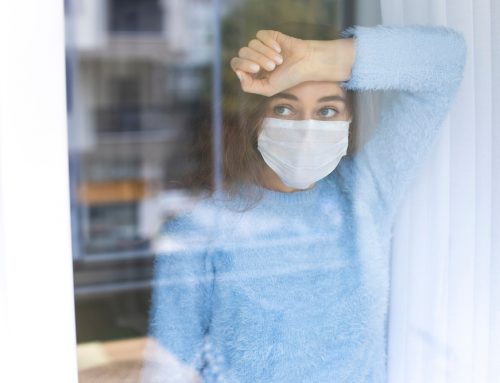Sleep is vital for maintaining mental, emotional, and physical health. Recognizing the signs you need more sleep can help you address underlying health concerns and improve your overall well-being. Are you feeling constantly tired, unfocused, or emotionally overwhelmed? These could be clear indicators that you’re not getting enough sleep.
Sleep deprivation affects everything from cognitive function and mood to immune response and energy levels. It’s not just about feeling tired—it’s about how lack of sleep impacts your daily life and long-term health. Poor sleep habits can lead to difficulties concentrating, weakened immunity, and even increased risks of chronic conditions.
Understanding why sleep is important for overall health and how to recognize the signs of insufficient rest is the first step to achieving better sleep. Let’s explore the key indicators and actionable steps you can take to reset your sleep cycle and restore balance to your life.
IN THE NEWS:
Two recent Huffington Post articles highlight how diet affects sleep patterns and the reverse – how sleep patterns affect diet. ….Yes, there is a bit of ‘what comes first, the chicken or the egg‘? Whatever it is, we do know for certain that food/health choices affect sleep, and sleep affects food/health choices.
…and this is why I always look at rest, relaxation, and sleep with health coaching clients… it’s SO important. Check out these surprising signs from the Huffington Post:
Surprising Signs You Need More Sleep
from the Huffington Post
1. You’re Ravenous
If you find yourself hungry all day (and not because you skipped breakfast or have recently amped up your gym routine), it might be because you’ve been skimping on sleep.
Research presented at the 2010 meeting of the Society for the Study of Ingestive Behaviour linked little shuteye with higher levels of the hormone ghrelin, the same one that triggers hunger, HuffPost reported.
This uptick in the hunger hormone seems to lead to not only increased snacking but also a hankering for high-carb, high-calorie foods, according to a 2004 study, which may help explain why people who don’t get enough sleep are at a greater risk of obesity.
2. You’re Weepy
Ever find yourself tearing up over an embarrassing TV commercial? While women might be quick to blame PMS, it could be a lack of sleep sending your emotions into overdrive. A 2007 study found that sleep-deprived brains were 60 percent more reactive to negative and disturbing images, USA Today reported.
“It’s almost as though, without sleep, the brain had reverted to more primitive patterns of activity, in that it was unable to put emotional experiences into context and produce controlled, appropriate responses,” Matthew Walker, senior author of the study, said in a statement.
3. You’re forgetful or unfocused
You might be tempted to blame your trouble focusing on your age or stress or your overflowing email inbox, but a lack of sleep could be the true culprit.
Too few hours in dreamland has been linked to a whole host of cognitive problems, like difficulty focusing and paying attention, confusion, lower alertness and concentration, forgetfulness and trouble learning, WebMD reports.
So next time you find yourself forgetting where you put your keys, consider how much sleep you got last night.
4. You Can’t Shake That Cold
If you keep coming down with the sniffles — or can’t seem to kick that never-ending case — you might want to assess your sleep schedule. A 2009 study found that people who sleep fewer than seven hours each night have almost three times the risk of catching a cold than people who slept for at least eight hours, the LA Times reported.
5. You’re Clumsier Than Usual
First, you knock the alarm clock off the dresser, then you spill the milk as you’re pouring your cereal, then you stub your toe on the way out the door — you’ve become a klutz overnight.
Researchers don’t know exactly why, but sleepy people seem to “have slower and less precise motor skills,” Clete Kushida, M.D., Ph.D., director of the Stanford University Center for Human Sleep Research, told Prevention. Reflexes are dulled, balance and depth perception can be a little wonky and since you may also have trouble focusing, reaction time can be slowed, meaning you can’t quite catch the egg carton before it hits the floor.
6. You’ve Lost That Lovin’ Feeling
If you or your partner just can’t get in the mood, and stress or an underlying health problem isn’t to blame, you might want to spend some extra time between the sheets — sleeping.
Both men and women who don’t get their 40 winks experience a decreased sex drive and less interest in doing the deed, WebMD reports. A lack of sleep can also elevate levels of cortisol, the stress hormone, according to Everyday Health, which doesn’t help in the bedroom either.
Prioritize Your Sleep with Holistic Support
Sleep is a biological necessity that influences every aspect of your well-being. Poor sleep can lead to a weakened immune system, difficulty concentrating, and even chronic health conditions.
At Innate Wellness, our Naturopathic Medicine services include comprehensive consultations that address factors like what causes lack of sleep and how lifestyle adjustments can improve your rest. During your consultation, we’ll provide personalized strategies and insights to help you achieve better sleep and improve your overall wellness.
If you’re struggling with sleep deprivation or want to reset your sleep cycle naturally, we’re here to help. Contact us today to book a consultation and learn more about the signs you need more sleep and how to regain balance in your life.





